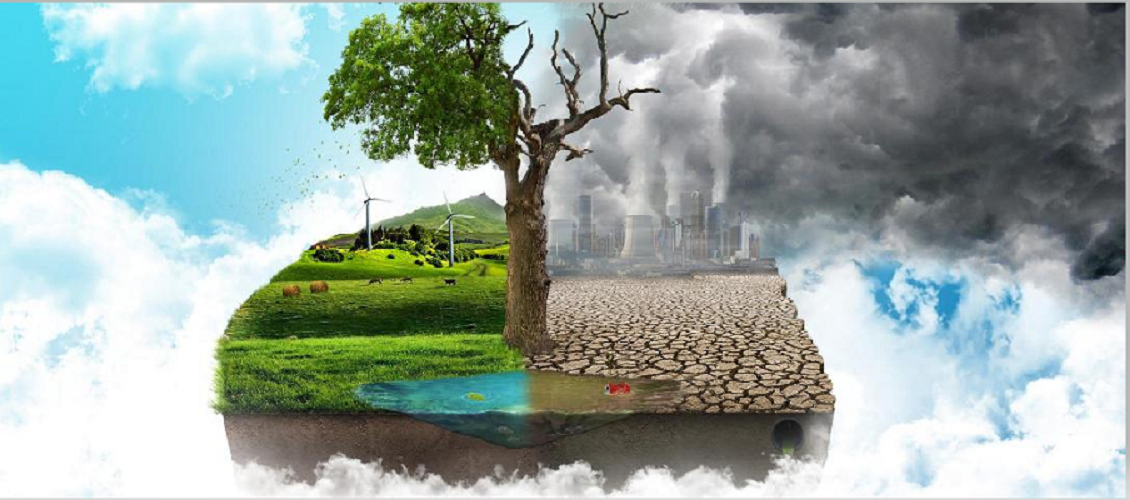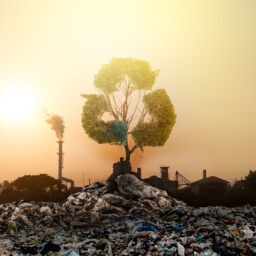
A few years ago, looking out the window of my high-rise apartment was a visual feast. Fresh clean air filling my lungs, the sun dazzling on the horizon over the clear blue ocean, captivating clouds gliding across the bright blue skies, pelicans fishing and ducks paddling in the backwaters that nestle alongside the stretch of our township, and lush green landscape across acres of land. It revealed very little about what was gradually unfolding.
It wasn’t long before we had to deal with illegal garbage dumping and burning along the waterfront, as well as raw sewage discharge into the backwaters. The magnitude of the environmental and health risk was enormous. Like-minded community members formed teams to deal with a variety of issues, collaborating with people, government, environmental activists, and non-governmental organizations (NGOs). This remains a challenge, and the community task force remains vigilant.
This plight in my own neighbourhood pales in comparison to what is going on around the world. As a result of our failure to protect what we took for granted, we have allowed unrestricted exploitation of natural resources and ecosystems.
This article is an attempt to raise awareness about environmental issues and their impact on us.
Our actions will determine the future of our planet, which must begin with overcoming the belief that we are too small to make a difference. For decades, alarm bells have been ringing, and the current environmental crisis, in both its pace and magnitude, is compelling enough to warrant action. This is a global issue and it is our individual and collective responsibility to keep the environment healthy.
Nature’s wrath and vengeance are at their peak. Beautiful morning mist and fog have become dense with smog and fumes, the silent whisper of the winds now gusting and groaning, and the waves’ once tranquil playful rhythm churns, foams, and lashes over the shores. Thunder in the distance, heavy dark clouds twisting and swelling with lightning ripping through the skies, fire ravaged forests, and the pitter-patter of rain now lashing down and washing away our land. The atmosphere is thick with remorse.
To quote Sir Edmund Hillary, “Environmental problems are really social problems anyway. They begin with people as the cause and end with people as the victims.”
Do we understand the environmental consequences of our actions?
The greatest challenge humanity faces today is a lack of conservation ethics in our society, as well as awareness, a strong policy framework for sustainable development, the belief that technology will solve all problems, and a low regard for research evidence on environmental and health risks. Aside from that, there is a slew of economic, social, political, and humanitarian concerns. This might be contentious, and it has sparked a lot of discussion. However, there is broad consensus on problems such as the environmental catastrophe, as well as human and health concerns.
Based on our attitudes, beliefs, goals, expectations, and behaviours, we all have an opinion on environmental concerns. This disrupts our ecosystem’s natural balance and destroys the environment around us, having a detrimental impact on our lives and causing natural disasters such as floods, droughts, wildfires, earthquakes, and tsunamis.
CLEAN air, water, soil, and energy are the four essential elements for our survival. Nature naturally creates, cleanses, and renews these four elements, as long as we limit the use of all natural resources and ecosystems.
What are the environmental issues that have emerged over the years and plaguing our planet?
Our planet is on the verge of new and difficult environmental problems that will have far-reaching consequences for humans, economies, and ecosystems.
Over time, global warming, rising sea levels, ozone depletion, biodiversity loss, melting polar ice caps, air and water pollution, soil erosion and degradation, species extinction, ocean acidification, encroachment on water bodies, ground water depletion, and other environmental issues have emerged.
Other issues associated with the environmental crisis include overpopulation, population displacement, urbanisation, poverty, health issues, unsustainable waste and waste disposal, food insecurity and waste, scarcity of fresh water, increased oil and energy consumption, depletion of natural resources and ecosystems, deforestation, technological development, and politics.
We are also threatened by natural disasters such as earthquakes, landslides, floods, tsunamis, and wildfires, which occur regularly. The vulnerability of humans to natural disasters is increasing.
We must accept responsibility and not choose to do nothing. To create a sustainable world, we need sustainable practices.
It is the result of a collaborative effort on the part of the government, policymakers, environmental activists, non-governmental organizations (NGOs), corporate social responsibility (CSR), other stakeholders, and the general public.
Why not start with simple behavioural changes to raise environmental problem prevention and resolution awareness among individuals, groups, and society as a whole? Recycle, reuse, plant trees, save water and electricity as well as reduce plastic and paper waste.
Reduce pollution and the use of oil and fossil fuels on a larger scale by incorporating biofuel, hydropower, solar energy, and wind power. Environmental education with the goal of making a difference and lowering one’s carbon footprint, as well as the implementation of environmental education curriculum in schools. Investing in biodiversity conservation, wildlife conservation, and environmental restoration are also priorities. To support environmental campaigns, use social media as an educational tool, as well as brands and role models.
Government intervention is essential, as is the establishment of a clear policy framework that promotes sustainable development and encourages investment in environmental technologies. In addition, to enforcing stringent environmental regulations and coordinating the efforts of all government agencies and stakeholders.
Humans are a part of nature, not apart from it. Let us work together to create an environment that does not require protection and to keep our overburdened planet from reaching a tipping point.
To quote the Native American saying, “We do not inherit the Earth from our ancestors, we borrow it from our children.”
Can we, in our own small way, be responsible citizens with a conscience?


There’s such abundance in nature despite human atrocities….what a green 🌎 we could pass on, if only we cared a little!
Absolutely.
Love the article! Really informative
Thanks Kuks.